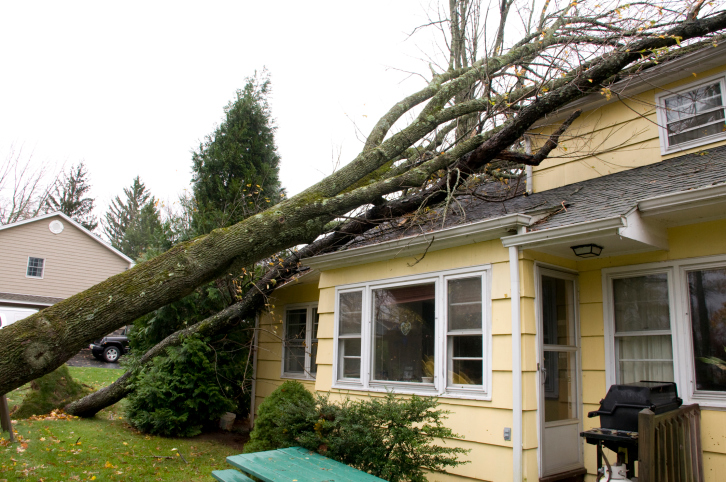THURSDAY, NOVEMBER 17, 2016
 We have all heard the horror stories. A thunderstorm rolls through your neighborhood, and suddenly there is an oak tree in your living room. We have all heard the horror stories. A thunderstorm rolls through your neighborhood, and suddenly there is an oak tree in your living room.
If a tree falls and damages your home, it can cause some of the most serious damages that a homeowner can experience.
Your homeowners insurance policy will often pay for repairs caused by falling trees or limbs. However, there are times when these payments are insufficient.
Here are some tips that you can follow to cut your risk of damages caused by falling trees.
- Be aware of dead trees and limbs. Have them removed. If an owner hasn't had a dead tree removed in a timely fashion, an insurance company might claim that the owner was aware of the risks, and ignored them. Some insurance policies will not cover all damages caused by a fallen, dead tree.
- Prune and trim your trees regularly.
- Water trees during dry periods to keep them alive and keep the soil from becoming brittle. However, don't over-saturate the trees.
- Plant new trees a safe distance from your house.
- When building on slopes, plant trees on flat ground by cutting into a hillside or building out a slope.
- Cut down trees that are leaning or pose risks of falling. You can also have trees professionally braced.
- Plant trees away from areas that are prone to flooding and water runoff. Too much saturation can weaken roots and the soil, and cause a tree to fall.
There are many landscaping and planting techniques that can help prevent trees from falling. Routine maintenance can reduce the risk of trees falling, except in the most extreme circumstances.
As a responsible homeowner, you should be aware when a tree or limb poses a danger to your home and your family. Having a strong insurance policy can help you in the event of unfortunate accidents. However, following the steps listed above, you can reduce the risk of damage in the first place.
Make sure you're covered. Call First Insurance Group at (800) 511-2892 for a free Kentucky home insurance quote.
No Comments
Post a Comment |
|
Required
|
|
Required (Not Displayed)
|
|
Required
|
All comments are moderated and stripped of HTML.
|
|
|
|
|
|
NOTICE: This blog and website are made available by the publisher for educational and informational purposes only.
It is not be used as a substitute for competent insurance, legal, or tax advice from a licensed professional
in your state. By using this blog site you understand that there is no broker client relationship between
you and the blog and website publisher.
|